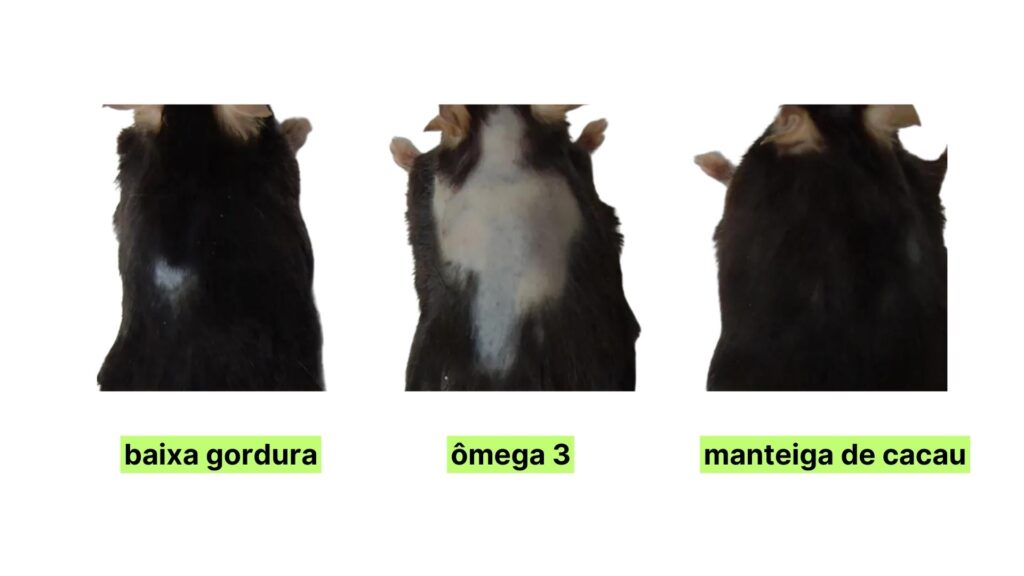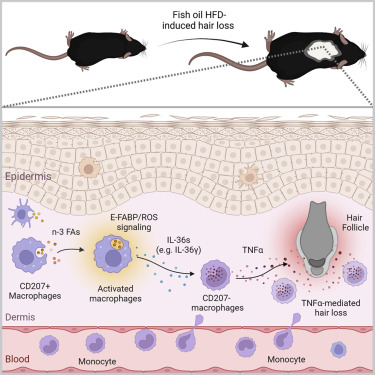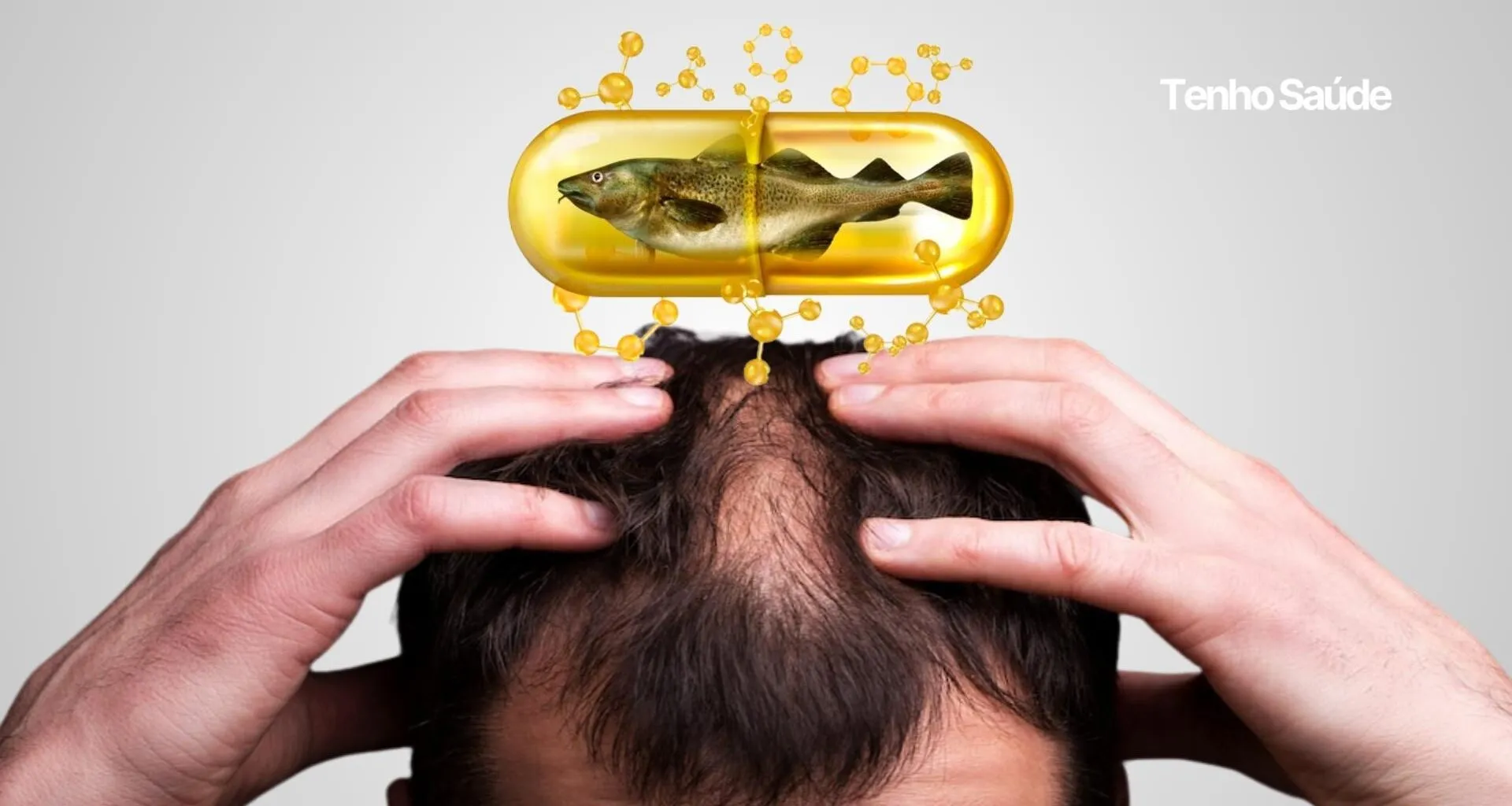Omega 3, a villain for hair?
It's ironic to think that omega-3s, often touted for their health benefits, could have a negative effect on hair.
While it is true that this oil is often recommended for improving overall health, including hair health, research recently published in the renowned scientific journal Cell Reports revealed a surprising discovery by chance.
Unexpected discovery
Scientists of the Carver College of Medicine, were researching how different types of fat affect obesity and the growth of tumors related to this condition. To do this, they fed mice three different diets:
- Rich in fat containing fish oil (omega 3);
- Rich in fat containing plant-based cocoa butter (Palm Oil);
- Low-fat diet (control group).
The result was unexpected: Mice fed omega-3-rich fish oil showed significant hair loss on their backs, while the other groups showed no hair loss.

The researchers repeated the experiment using different mice, and on each occasion they obtained the same result, arousing the interest of scientists.
Since there was no research describing the motivation for this event, they decided to investigate the motivation themselves.
Reason for fall identified
The researchers concluded that while the fatty acids in cocoa butter spread throughout the body normally, the omega-3s accumulated in the skin.
Through analysis, it was discovered that the cells that absorbed fish oil into the skin produce an inflammatory substance at high levels, called TNF-a, which attracts defense cells to “attack” this inflammation, causing the death of stem cells responsible for hair growth, resulting in the hair loss observed in the mice.

Additional experiments confirmed that elevated levels of TNF-a were present only in mice that consumed fish oil.
Furthermore, when mice fed fish oil were treated with antibodies that block the action of TNF-a, hair loss was significantly reduced.
This suggests that TNF-a plays an important role in the hair loss process induced by fish oil consumption.
Comparative observations
Interestingly, researchers have observed that countries that rely heavily on oily fish as a food source, such as Japan, have a higher incidence of baldness compared to other countries.
Although there is no solid scientific evidence to prove this correlation, the observation raises questions about the effects of excessive omega-3 consumption on hair health.
Important considerations
It is important to note that this finding is based on animal studies. More research is needed to better understand this possible connection and how it applies to humans. Therefore, caution should be exercised when drawing definitive conclusions from these results.
Although a diet rich in fish oil is not normally associated with hair loss disorders in humans, it is important to note that there are also studies that indicate that omega-3 is beneficial for the scalp, as it improves blood circulation in this region.
Should I stop taking omega 3?
For those who are undergoing treatment or are concerned about hair loss, we recommend the following actions:
- Moderation in fish oil consumption: If you are taking fish oil as a supplement, consider reducing the dose or temporarily stopping use for 30 to 90 days to see if there is any improvement in hair loss.
- Alternatives to fish oil: If you are concerned about hair loss and still want to get the benefits of omega-3 fatty acids, there are other sources such as chia seeds, walnuts, flax seeds, and seaweed that can be explored as alternatives to fish oil.
- Consult a healthcare professional: If you notice significant hair loss after consuming fish oil, it’s important to consult a doctor or dermatologist. They can assess your specific situation, perform tests, and provide appropriate guidance.
Remember that there are thousands of studies that prove that omega 3 is beneficial for the health of the brain, heart and several other areas of the body. This effect presented is only aesthetic.
Everyone is unique and reacts differently to different nutrients and substances. It is important to seek medical advice and conduct additional research to make informed decisions about supplementation and its impact on hair health.
See the latest content from I am healthy.
Source and bibliography:
1. Cell Reports Magazine. Scientific study “Consumption of high-fat diet from fish oil induces hair loss in skin macrophages”.






